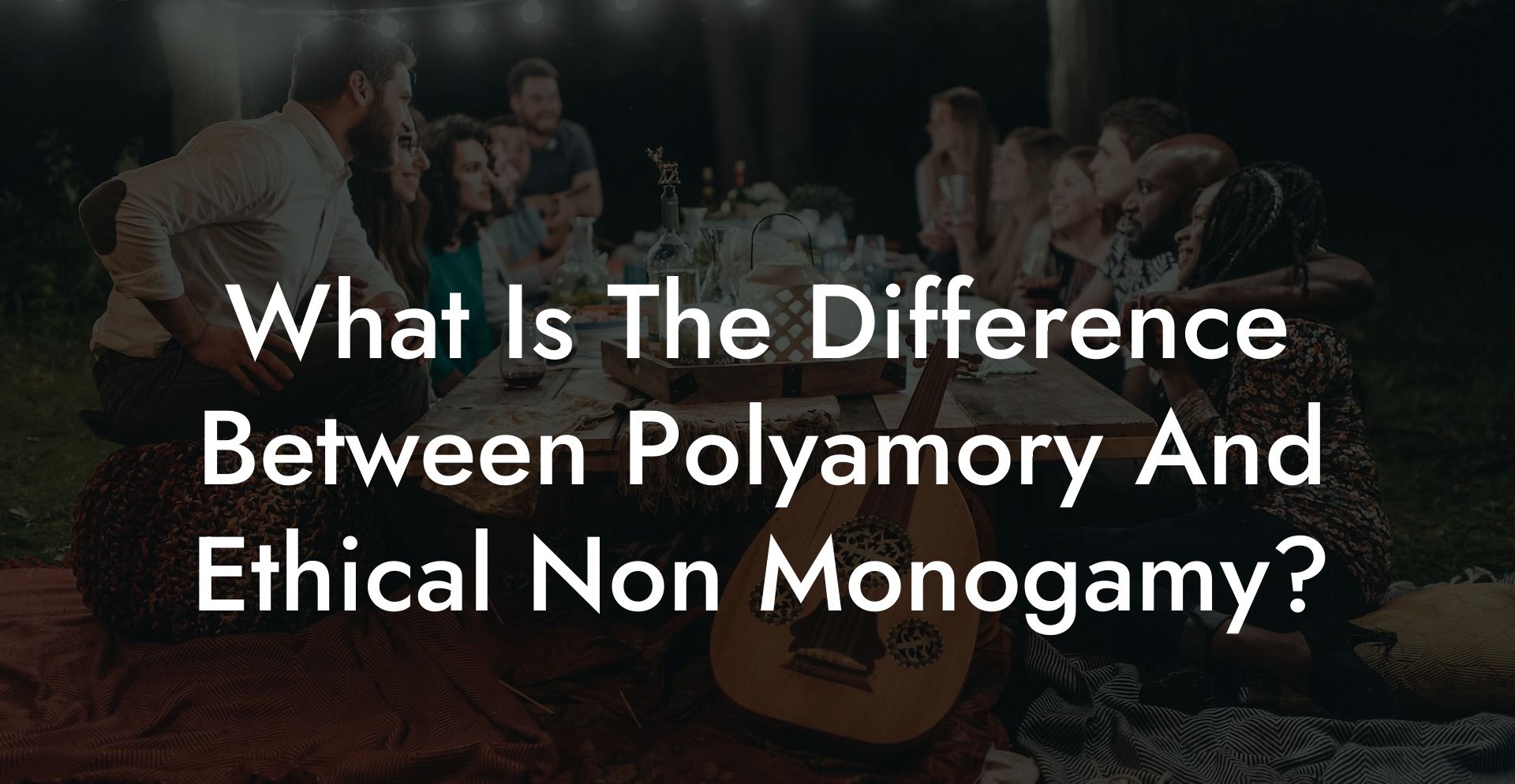Are you curious about the myriad ways people can engage in meaningful, committed relationships beyond the traditional monogamous model? Let's dive into the fascinating world where love, trust, and consent take on diverse forms. Welcome to The Monogamy Experiment, where we explore alternative relationship dynamics such as polyamory and ethical non-monogamy. In this article, we'll differentiate between these two concepts and provide real-life examples to help you better understand the many paths to romantic fulfillment. So let's go ahead and discover the exciting world of polyamory and ethical non-monogamy!
What Is The Difference Between Polyamory And Ethical Non Monogamy Table of Contents
Difference Between Polyamory And Ethical Non Monogamy Examples
Polyamory and ethical non-monogamy are both alternatives to traditional monogamous relationships, allowing individuals to explore and engage in multiple romantic connections. However, these two terms are not interchangeable, and understanding their unique features can help individuals to choose the relationship model that best suits their needs and desires.
Polyamory is a specific form of ethical non-monogamy that revolves around the belief in, or practice of, engaging in multiple simultaneous romantic relationships with the consent and knowledge of everyone involved. Polyamorous individuals can develop deep emotional connections with more than one person, creating a unique form of ethical non-monogamy built on communication, trust, and emotional intimacy. This relationship structure can take many forms, such as a triad or a quad, where all members are romantically or sexually connected to others in the group, or as a network of interconnected relationships.
Ethical non-monogamy, on the other hand, is a broader term that encompasses a wider range of relationship models where individuals can engage in multiple romantic or sexual connections with the knowledge and consent of their partners. Ethical non-monogamy can include polyamory, but it also includes other relationship styles:
Open relationships: A couple agrees to engage in sexual experiences with others, with or without emotional connections, while maintaining their primary relationship.
Swinging: Couples engage in sexual experiences with other couples or individuals, often at organized events or parties.
Relationship anarchy: Each relationship is individually negotiated and defined by the people involved, without adhering to any specific structure or hierarchy.
Difference Between Polyamory And Ethical Non Monogamy Examples
Let's look at some examples to better illustrate the differences between polyamory and other forms of ethical non-monogamy:
- Alex and Taylor are married and decide to open up their relationship, allowing each other to have sexual experiences with other individuals but prioritizing their emotional commitment to each other. This is an example of an open relationship, a form of ethical non-monogamy.
- Maria, John, and Sam are in a triad, where all three individuals are romantically and sexually involved with each other. They also openly communicate about their relationships and seek consent from the others before engaging in romantic or sexual connections outside of their triad. This is an example of polyamory.
As you can see, polyamory and ethical non-monogamy are not one-size-fits-all concepts. They provide diverse options for individuals to explore their desires and create a relationship model that works best for them. The key to these alternative relationship styles is open communication, trust, and the consent of all parties involved.
We hope this article has helped you understand the differences between polyamory and ethical non-monogamy, but if you'd like to dive even deeper, go ahead and check out our other guides here at The Monogamy Experiment. Feel free to share this article with your friends and loved ones, and be sure to explore other engaging topics on our blog. The world of love and relationships is vast and exciting, so let's keep the conversation going!













